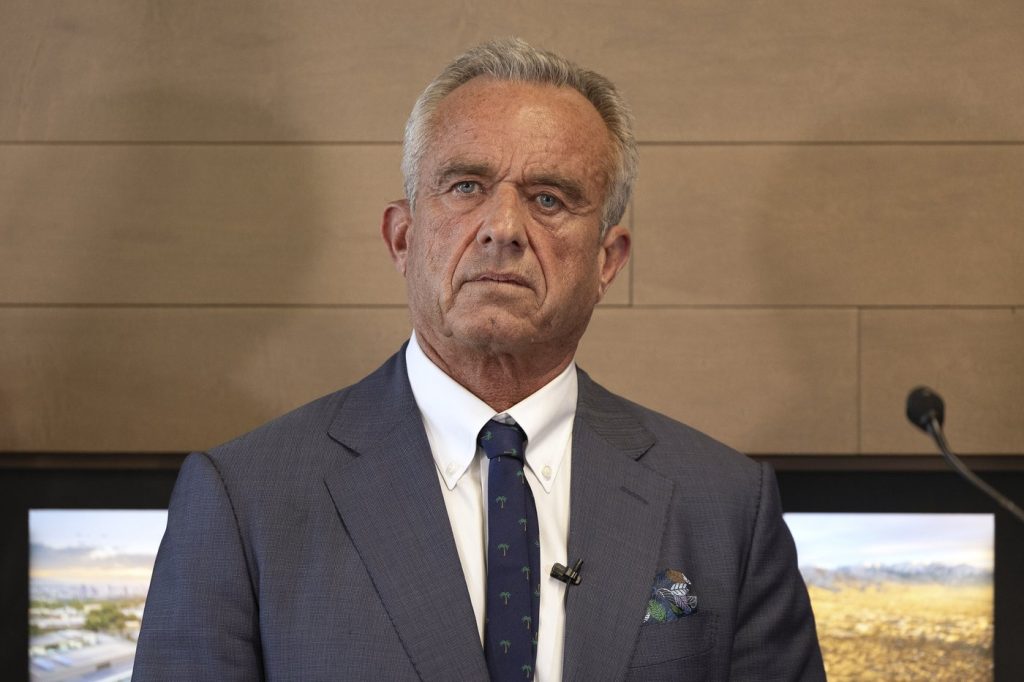Attorneys general from 19 states and Washington, D.C., have initiated a legal challenge against cuts to the U.S. Department of Health and Human Services (HHS), claiming that the restructuring undertaken by the Trump administration has dismantled critical health programs and forced states to shoulder the financial burden of escalating health crises. The lawsuit was filed on a recent Monday in federal court in Washington, D.C., with New York Attorney General Letitia James spearheading the action. Attorneys general from Arizona, California, Colorado, Connecticut, Delaware, Hawaii, Illinois, Maine, Michigan, Maryland, Minnesota, New Jersey, New Mexico, Oregon, Rhode Island, Vermont, Washington, and Wisconsin have joined the complaint.
The restructuring, led by HHS Secretary Robert F. Kennedy Jr., occurred in March and resulted in the termination of over 10,000 employees, collapsing 28 agencies into 15, as stated in the lawsuit. Additionally, the Trump administration had previously reduced the HHS workforce by another 10,000 employees, leading to a total reduction of 25% of the department's workforce. The attorneys general argue that these drastic cuts have stripped HHS of essential resources required to fulfill its mission effectively.
Secretary Kennedy has defended the downsizing by asserting that it aims to streamline public health agencies and eliminate redundancies. The cuts were implemented under the directive titled "Make America Healthy Again" (MAHA), which has drawn considerable criticism from the attorneys general. They claim that the changes have severely hampered HHS's core functions, leaving vital health initiatives underfunded and in disarray.
The repercussions of these cuts are far-reaching, affecting various health programs. The lawsuit details how laboratory testing for certain infectious diseases has been curtailed, the federal government is no longer tracking cancer risks among U.S. firefighters, and funding uncertainties threaten early childhood learning programs. Specific programs focused on cancer monitoring and maternal health have also been shuttered. Furthermore, cuts at the Centers for Disease Control and Prevention (CDC) have impeded states' responses to one of the most significant measles outbreaks in recent history, as highlighted in the lawsuit.
The attorneys general contend that the intended outcomes of the MAHA directive were to cause chaos within the department, undermining its essential functions. They are seeking a judicial ruling to vacate the directive, arguing that the administration lacks the authority to unilaterally eliminate programs and funding established by Congress.
Notably, the restructuring has dismantled the entire team responsible for maintaining federal poverty guidelines, which are pivotal for states in determining residents' eligibility for programs such as Medicaid and nutrition assistance. Significant staff reductions have also occurred at the Substance Abuse and Mental Health Services Administration, raising further concerns about the consequences for public health initiatives.
The Trump administration is currently facing additional legal challenges regarding cuts to public health agencies and research organizations. Recently, a coalition of 23 states filed a federal lawsuit in Rhode Island opposing the administration's decision to slash $11 billion in federal funding for COVID-19 initiatives and various public health projects nationwide.
These developments underscore the contentious relationship between state officials and the federal administration regarding public health priorities and funding, reflecting broader discussions on the future of health care management in the United States.











